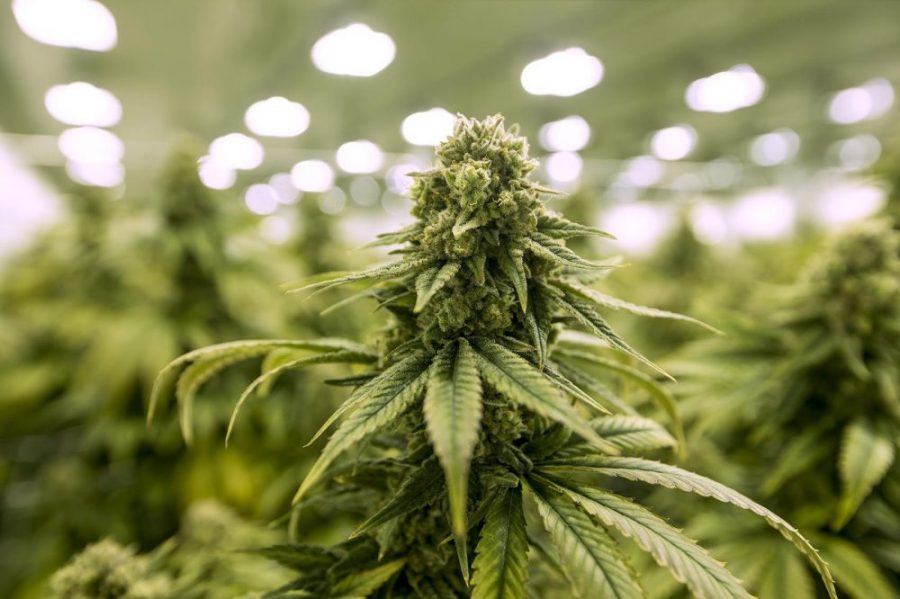CT Residents Want Revised Recreational Marijuana Bill
Multiple bills on legalizing recreational marijuana are floating in the Connecticut legislature right now.
March 25, 2019
A bill advocating the sale of recreational marijuana was met with mixed opinions at a General Law Committee public hearing in Hartford last Friday, with locals supporting legalization, but not the piece of legislation itself.
“I’m supportive of legalization, but opposed to this bill,” Aaron Romano, an attorney who represents the Connecticut chapter of the National Organization for the Reform of Marijuana Laws, or NORML, said in his testimony to the General Law Committee. “I don’t think this bill goes far enough in terms of allowing small business development, due to the fact that small business entry is prohibited from this bill.”
“An Act Concerning The Retail Sale Of Marijuana,” known as HB 7371, was introduced by the General Law Committee and co-sponsored by Democratic Representative Steven Stafstrom of the 129th District. It passed a vote in the committee March 25 to go to the House floor.
Stipulations of the bill include requiring renewal of cannabis retailers’ licenses every two years, prohibiting packaging designed to appeal to children and requiring warning labels listing the risks and benefits of the using cannabis.
Over 80 residents, marijuana-related businesses and healthcare institutions testified, including Phillip LeBlanc of West Hartford.
“I wanted to make Connecticut work because all of our friends are here, but I could buy a house in a border county easily enough, and be free to exercise my rights on my own personal property,” LeBlanc wrote in his testimony. “…if there is no answer on if home cultivation will be legalized by May, I will move out of state. I’m tired of waiting… I refuse to give any amount of tax dollars to a state that doesn’t offer me my cultivation rights on my personal property.”
LeBlanc testified that although he is currently looking to buy a home in Connecticut, he’s considering moving to Massachusetts where he can legally grow and cultivate 12 personal-use marijuana plants.
Critics of the bill and supporters of recreational marijuana highlighted flaws they said they could not overlook. Brian Essenter, a Monroe resident and former dispensary manager, submitted testimony that included a detailed list of the elements he agreed with and those he did not, such as “Section 6.”
Section 6 would conduct a study run by The Cannabis Control Commission to establish, “if consumers or qualifying patients…shall be permitted to cultivate cannabis for personal use.”
“Homegrow does not pose any more threat to children or anyone than homebrewing alcohol. Except that homebrew alcohol is instantly able to cause intoxication,” Essenter wrote in his testimony. “Cannabis as a raw plant is THCa, which is non-psychoactive.”
Essenter described this section as “a massive waste of time and money.”
In addition to this bill, the General Law Committee raised another up for testimony called “An Act Concerning Revisions To The Medical Marijuana Program,” or HB 7287.
“I am a Connecticut Medical Marijuana patient, I oppose this bill for many reasons,” Marc Cournoyer, a Canton resident, wrote in his testimony. “I am very concerned for the integrity of the MMP program being compromised once the sale of rec[reational] starts. If this bill is passed, this commission must allow CT MMP patients the option for homegrow.”
Medical marijuana became legal in Connecticut in 2012, and the state has since allowed the opening of 18 dispensaries.
“Only producers licensed by the Department of Consumer Protection will be authorized to cultivate marijuana. At any one time, the number of licensed producers shall be at least three and not more than 10,” Connecticut’s Department of Consumer Protection website said.
The Judiciary Committee had a simultaneous public hearing, and three bills were raised: SB 1085, An Act Concerning The Legalization Of The Retail Sale And Possession Of Cannabis And Concerning Erasure Of Criminal Records In The Case Of Convictions Based On The Possession Of A Small Amount Of Cannabis; SB 1089, An Act Concerning Cannabis And The Workplace; HB 7372, An Act Concerning Driving While Under The Influence of An Intoxicating Drug.




